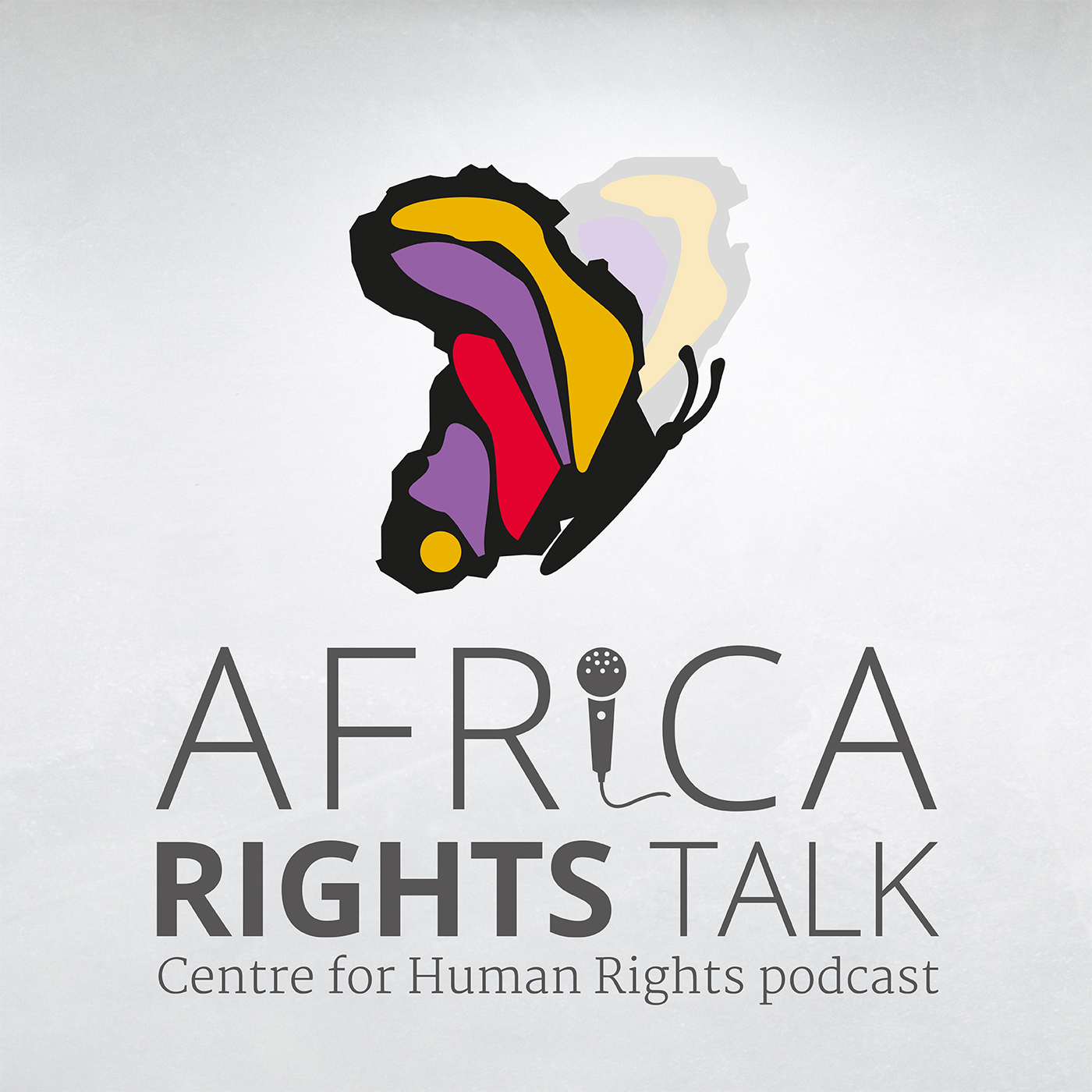Episodes
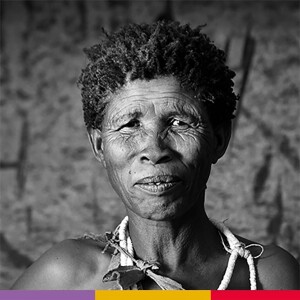
Thursday Feb 23, 2023
Thursday Feb 23, 2023
In conversation with Dr Melakou, Xanne Bekaert, Jean-Mary Tjiohimba and Martin Simotwo
The Centre for Human Rights is embarking on a campaign #GreenJusticeAfrica, to address the impact of climate change on the protection and fulfilment of human rights in Africa. This episode focuses on the impact of climate change on Indigenous People and it was recorded in light of the Advanced Human Rights Course on Indigenous Peoples' Rights.
The episode takes a twist, unique from the other episodes, as it narrates the experiences of representatives from the Ogiek and Khoisan communities, Martin Simotwo and Jean Mary Tjiohimba respectively. Martin Simotwo is member of the Board of Directors of Chepkitale, a non-governmental organisation whose aim is to ensure the realisation of Chepkita people's rights. Jean Mary Tjiohimba is the founder and Managing Director of the San Vision Foundation, an organisation whose aim is to provide education for the Khoisan Indigenous community. Dr. Melakou Tegegn, Member of The Working Group on Indigenous Populations goes on to give a scholarly analysis of the impact of climate change on indigenous groups in Africa, while Xanne Bakaert, a passionate and entrepreneurial student of law, narrates the importance of respecting the environment through a human rights lens. She emphasises the importance of the human rights perspective as it is important in order to draw attention to the protection of the rights of the indigenous peoples, who are particularly vulnerable to environmental degradation because of their dependence on the environment.
Click the link to follow our new Africa Rights Talk twitter page
This conversation was recorded on 11 November 2022
Music: Inner Peace by Mike Chino https://soundcloud.com/mike-chinoCreative Commons — Attribution-ShareAlike 3.0 Unported — CC BY-SA 3.0 http://creativecommons.org/licenses/b...Music promoted by Audio Library https://youtu.be/0nI6qJeqFcc. Light-Optimistic-Corporate https://stock.adobe.com/. adobe stockad_AdobeStock_564752180_preview.m4ahttps://stock.adobe.com/.
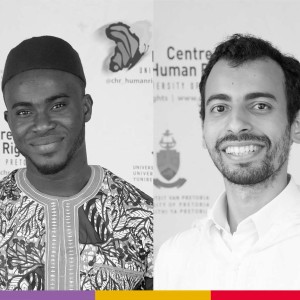
Saturday Aug 27, 2022
Saturday Aug 27, 2022
In conversation with Farouk Adedoyin and Reda Benkhadra
Every year, students at the Centre for Human Rights, University of Pretoria on the LLM/MPhil programme in Human Rights and Democratisation in Africa (HRDA) are assigned to human rights clinics which contribute to the work of the Centre’s research units and give the students practical experience and advance the Centre’s mission towards the realisation of human rights in Africa. In the year 2022, the HRDA students embarked on a #RatifyADRP campaign, urging African Union member states to ratify the Protocol to the African Charter on Human and Peoples’ Rights on the Rights of Persons with Disabilities in Africa (Africa Disability Protocol).
The African Union Assembly adopted the Protocol to the African Charter on Human and Peoples’ Rights on the Rights of Persons with Disabilities in Africa (Africa Disability Protocol) on 28 January 2018. The African Disability Protocol is the culmination of the African Union’s efforts to create a framework to safeguard the human rights of persons with disabilities on the continent. However, the Protocol has not yet attained the 15 ratifications required for it to come into force. To date, the Protocol has been signed but not ratified by Angola, Burkina Faso, Cameroon, Central African Republic, Gabon, Mali, Rwanda, South Africa and Togo.
This episode calls on all Africans, especially stakeholders to advocate, campaign and ensure that the Protocol is ratified by all the 55 members of the African Union.
#RatifyAfricanDisabilityRightsProtocol
#RatifyADRP
This conversation was recorded on 5 July 2022
Music: Inner Peace by Mike Chino https://soundcloud.com/mike-chinoCreative Commons — Attribution-ShareAlike 3.0 Unported — CC BY-SA 3.0 http://creativecommons.org/licenses/b...Music promoted by Audio Library https://youtu.be/0nI6qJeqFcc
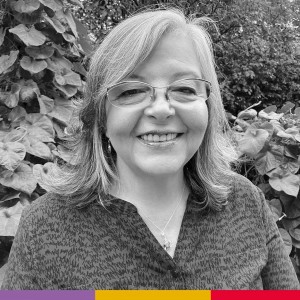
Tuesday Aug 23, 2022
Tuesday Aug 23, 2022
In conversation with Dr Yolanda Munoz
"You cannot talk of climate change when inclusion is an afterthought".
The Centre for Human Rights is embarking on a campaign, #GreenJusticeAfrica to address the impact of climate change on the protection and fulfilment of human rights in Africa. Climate change is now one of the biggest threats to human rights globally. In this episode, Dr Yolanda Munoz, an academic and advocate for the rights of people with disabilities and a full-time wheelchair user, discusses the impact of climate change on the rights of persons with disabilities.
There is no climate justice without disability justice. Climate change is currently the central political and moral issue around the globe. It affects everyone, but not equally. For persons with disabilities, the threat is compounded by discrimination, marginalisation, and other pre-existing inequalities. From the 1990s, disability rights started to receive more attention in the African Commission. Though the African continent has made significant strides to include persons with disabilities in the society, the same cannot be said of climate justice. The even adaptation and mitigation practices, which seek to combat the effects of climate change may do harm to disability communities in Africa. In order to reduce such harms in the present and avoid them in the future, Africa must employ ethical frameworks that bring disability justice to the forefront of climate justice. Disability justice should be an integral part of conversations in climate change.
Professionally, Dr Yolanda Munoz has explored the social arrangements behind the unquestioned exclusion of people with disabilities. She has also served as a consultant for the Inter-American Development Bank, as Program Officer with the Disability Rights Fund, as an external consultant for Global Greengrants Fund and has collaborated with the Disability-Inclusive Climate Action Research Program, with the Faculty of Law at McGill University. In the academic field, she completed a Masters and a PhD in Japanese Studies, with speciality in the Ainu women of Northern Japan. Her knowledge on feminist theory and practice has been the motivation to design and teach the course “Gender and Disability,” offered since 2006 at the McGill Institute for Gender, Sexuality and Feminist Studies.
This conversation was recorded on 5 July 2022.
Music: Inner Peace by Mike Chino https://soundcloud.com/mike-chinoCreative Commons — Attribution-ShareAlike 3.0 Unported — CC BY-SA 3.0 http://creativecommons.org/licenses/b...Music promoted by Audio Library https://youtu.be/0nI6qJeqFcc
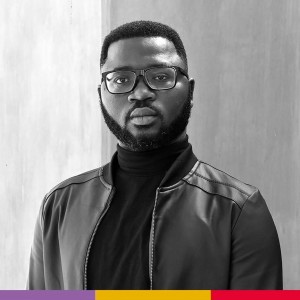
Friday Aug 12, 2022
S4 E2: The Evolution and enforcement of anti-gay laws in Nigeria
Friday Aug 12, 2022
Friday Aug 12, 2022
In Conversation with Dr Ayodele Sogunro
In this episode, Dr Ayodele Sogunro who has completed his doctoral studies at the Centre for Human Rights, walks us through the academic journey of attaining his PhD with the Centre for Human Rights. His PhD thesis is titled ‘Advocacy, Social Control and the criminalisation of same-sex relationships: The Evolution and enforcement of ‘anti-gay laws in Nigeria’. His research focuses on a critical legal studies perspective of LGBTIQ+ issues in Nigeria, around political homophobia, socio-economic issues, and the need by advocates to understand wider state dynamics of homophobia and transphobia in systems of power.
Dr Ayodele Sogunro is a Nigerian writer, lawyer and the Manager of the SOGIESC Unit at the Centre for Human Rights in the Faculty of Law, University of Pretoria. He is a legal and policy analyst with over ten years of field and courtroom experience in human rights law and advocacy in the African human rights system. Before joining the Centre, he was the Senior Legal Advisor with the Initiative for Equal Rights, a LGBT+ NGO in West Africa. His books include the short stories The Wonderful Life of Senator Boniface and other Sorry Tales and the collection of essays Everything in Nigeria is Going to Kill You. His literary essay, ‘One more nation bound in freedom: Themes from the Nigerian “anti-gay” law’ was shortlisted for the 2016 Gerald Kraak Award for African Writing. He has written an article ‘Why #EndSARS won’t quit’ in relation to the protests.
Visit Dr Ayodele Sogunro’s blog: www.ayosogunro.com
This conversation was recorded on 20 June 2022
Music: Inner Peace by Mike Chino https://soundcloud.com/mike-chinoCreative Commons — Attribution-ShareAlike 3.0 Unported — CC BY-SA 3.0 http://creativecommons.org/licenses/b...Music promoted by Audio Library https://youtu.be/0nI6qJeqFcc
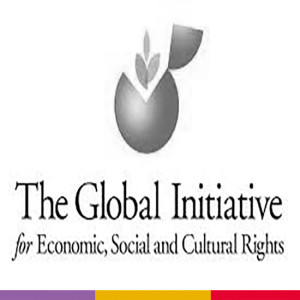
Thursday Apr 07, 2022
Thursday Apr 07, 2022
In conversation with Dr Rosella de Falco and Ms Ashina Mtsumi
Everyone has the right to health which relates to both the right of individuals to obtain a certain standard of health and health care, and the State obligation to ensure a certain standard of public health with the community generally. This episode was published in light of the World Health Day. World Health Day is a global health awareness day celebrated every year on 7 April, under the sponsorship of the World Health Organisation (WHO), as well as other related organisations.
In today’s episode Dr Rosella De Falco and Ms Ashina Mtsumi from The Global Initiative For Economic, Social And Cultural Rights(GI-ESCR) explore the issue of reversing commercialisation of public services and advocating for quality public services for all with a particular focus on the right to health. The COVID-19 pandemic exposed a number of flaws that existed in most public systems around the world. The Global Initiative For Economic, Social And Cultural Rights launched a report titled, ‘The failure of commercialised healthcare in Nigeria during the COVID-19 pandemic’.
Dr Rossella De Falco works as a Program Officer on the Right to Health at the Global Initiative for Economic, Social and Cultural Rights (GI-ESCR). She graduated cum laude with a Ph.D. in Human Rights from the University of Padova, Italy. She holds an LLM in Economic, Social and Cultural Rights from Essex University, an M.A. in International Affairs from Johns Hopkins University and a B.A. in International Cooperation and Development, Bologna University. She has authored several publications which can be found here. She previously collaborated with the Center for Economic and Social Rights (CESR) and the International Institute for Strategic Studies (IISS).
Ms Ashina Mtsumi is a human rights lawyer and Advocate of the High Court of Kenya. She is also an alumnus of the Master’s programme in Human Rights and Democratisation in Africa. She holds a Bachelor of Laws degree from the University of Nairobi and is passionate about social justice. She has worked in the human rights sector for over five years, carrying out research and advocacy on economic, social and cultural rights. In particular, her work focuses on the international human rights legal framework relating to the rights to land, housing, education, health and water, for marginalised communities.
This conversation was recorded on 1 April 2022
Music: Inner Peace by Mike Chino https://soundcloud.com/mike-chinoCreative Commons — Attribution-ShareAlike 3.0 Unported — CC BY-SA 3.0 http://creativecommons.org/licenses/b...Music promoted by Audio Library https://youtu.be/0nI6qJeqFcc
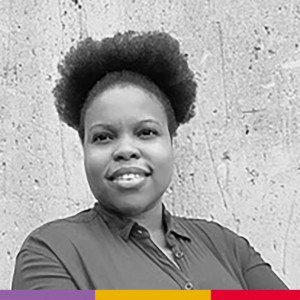
Monday Feb 07, 2022
S3 E12: #Tech4Rights: Violence against women and girls online
Monday Feb 07, 2022
Monday Feb 07, 2022
In conversation with Ms Amanda Manyame
The annual campaign spearheaded by the Centre for Human Rights, University of Pretoria is #Tech4Rights: Rethinking a human rights-based approach to new technologies in Africa. The #Tech4Rights campaign focuses on the impact of new technologies on different aspects of human interaction and the impact of technology on human rights. This campaign has a series of activities that look into technology in various specific areas.
In light of the annual campaign of the Centre, this episode discusses online violence against women with Ms Amanda Manyame from Equality Now. Ms Amanda Manyame is Equality Now's Digital Law and Rights Consultant. Amanda works at the intersection of technology and law and provides legal and technical expertise around Equality Now's programme to end online sexual exploitation and abuse. She discusses the different forms of online violence against women and girls and why online violence against women and girls should be taken seriously. She proffers various recommendations on what individuals, governments and relevant stakeholders can do to stop online violence against women and girls.
Equality Now is an international human rights organisation with the mission to achieve legal and systemic change that addresses violence and discrimination against all women and girls around the world. Founded in 1992, Equality Now is a global organisation with partners and members in every region. Ending sexual violence, ending sex trafficking, ending harmful practices and achieving legal equality are the main areas of Equality Now’s work.
Equality Now has undertaken legal research aimed at understanding what laws currently exist, gaps and opportunities to address online sexual exploitation and abuse with a particular focus on adolescent girls and women. The upcoming report focuses on the laws that apply globally, in the EU as well as nationally, in India, the UK, USA, Kenya, and Nigeria.
This conversation was recorded on 25 August 2021.
Music: Inner Peace by Mike Chino https://soundcloud.com/mike-chinoCreative Commons — Attribution-ShareAlike 3.0 Unported — CC BY-SA 3.0 http://creativecommons.org/licenses/b...Music promoted by Audio Library https://youtu.be/0nI6qJeqFcc
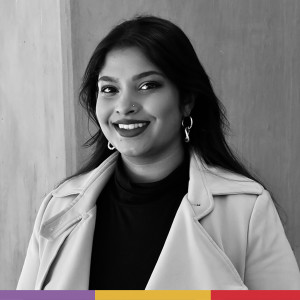
Tuesday Sep 14, 2021
Tuesday Sep 14, 2021
In conversation with Ms Thiruna Naidoo
The Centre for Human Rights, University of Pretoria is pleased to announce the publication of the third paper in the African Human Rights Policy Papers series.
This episode reflects on the newly launched African Human Rights Policy Paper Conversion therapy: Current practices, emerging technology and the protection of LGBTQ+ rights in Africa. This policy paper has been prepared by the Sexual Orientation, Gender Identity and Expression and Sex Characteristics (SOGIESC) Unit at the Centre for Human Rights, Faculty of Law, University of Pretoria. ‘Conversion therapy’ is a broad term that refers to therapy techniques or other activities that attempt to change or alter sexual orientation, or reduce a person’s attraction to other persons of the same sex, and instil conventional gender roles.
In this conversation is Ms Thiruna Naidoo, Project Officer, SOGIESC Unit, and Communications and Advocacy Associate, Centre for Human Rights. She begins by giving an overview of the findings of the policy paper and goes on to explain the different forms of conversion therapy. Ms Naidoo explains how legal frameworks reconcile with evolving forms of digital technology in how they appear to conform to legal standards and yet remain harmful in their effects.
Ms Naidoo is a multidisciplinary artist, author and visual creative interested in the intersections of human rights law, advocacy and the arts. Specifically, she is keen on how these intersections relate to the rights of LGBTIQ+ persons and other vulnerable groups such as migrants and persons of the female gender. She is currently pursuing an LLM/MPhil in Multidisciplinary Human Rights at the Centre.
In her work surrounding LGBTIQ+ rights, she has contributed to 'A Guide for African National Human Rights Institutions for Implementing Resolution 275 in Africa’. She participated in the drafting and advocacy work to further the UP Trans Protocol which was recently adopted at her institution. She has also served as the co-project manager for the Queer Strategists for Change leadership program in 2017 hosted by the Centre for Sexualities, AIDS and Gender in Pretoria, South Africa.
Thiruna's recent work as an author has come in the form of a book of poetry and art, which was self-published in late 2018 entitled ‘Between the Body and the Soul’ available on Amazon. Her writing can also be found in Touch, an anthology curated by Tiffany Mugo and Kim Windvogel. Her most recent creative multidisciplinary offering can be found in the Retrospect: Queerantine virtual exhibition supported by the Prince Claus Fund.
This conversation was recorded on 29 July 2021.
Music: Inner Peace by Mike Chino https://soundcloud.com/mike-chinoCreative Commons — Attribution-ShareAlike 3.0 Unported — CC BY-SA 3.0 http://creativecommons.org/licenses/b...Music promoted by Audio Library https://youtu.be/0nI6qJeqFcc
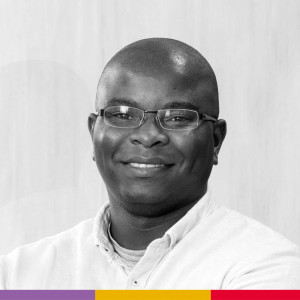
Tuesday Aug 24, 2021
Tuesday Aug 24, 2021
In conversation with Dr Eduardo Kapapelo
In this episode, Dr Eduardo Kapapelo who was awarded a Doctor of Philosophy degree (DPhil) from the Centre for Human Rights at the Faculty of Law, University of Pretoria discusses his doctoral thesis. In his thesis, Dr Kapapelo identifies how reforming the state and its institutions are vital not only for the prevention of violence, but for the establishment of democratic governance. His dissertation titled “The Role of State Institutions in Preventing Violent Conflict in Angola” explores the nature of Angola’s institutions and how they have created conditions under which individual rights and liberties are undermined. This thesis argues that overly- centralised states have a hand in contributing towards the emergence of conflict and that the design of the state, through its institutions, is paramount in safeguarding individual rights and in doing so, preventing the occurrence and or resurgence of violence. Furthermore, the thesis contends that while there are both global and regional mechanisms for the protection of human rights which promote values of peace, inclusiveness and democratic governance, states are still the main actors in international politics. As such it is their responsibility to structure institutions which would reflect such values based on their local contexts and realities.
Dr Eduardo Kapapelo is the Project Coordinator of the Nelson Mandela World Human Rights Moot Court Competition. The Nelson Mandela World Human Rights Moot Court Competition is presented by the Centre for Human Rights based at the Faculty of Law, University of Pretoria, in partnership with the Academy on Human Rights and Humanitarian Law, Washington College of Law, American University and the United Nations Human Rights Council Branch (HRCB) at the Office of the High Commissioner for Human Rights (OHCHR). He has extensive academic and research qualifications as well as strong strategic and operational management skills, combined with a history of working in complex demanding and high pressure environments. He has a strong research background on the African and European human rights systems, laws and policies and is well versed in the analysis of international and comparative law, state building and governance in Africa, African and European security policy, foreign policy analysis, international political economy and participatory governance.
Dr Kapapelo has a proven track record of developing collaborations with various stakeholders from government to academia, multilateral institutions to civil society and political actors. He has a successful history of raising and managing funds for non-profit organisations from major donors, foundations, and members. He has published a number of media articles. He has published a media article, originally published on AfricLaw titled, “Democracy in times of COVID-19: a time for introspection?”. To contact Dr. Eduardo Kapapelo, you can email him on eduardo.kapapelo@up.ac.za
This conversation was recorded on 20 May 2021.
Music: Inner Peace by Mike Chino https://soundcloud.com/mike-chinoCreative Commons — Attribution-ShareAlike 3.0 Unported — CC BY-SA 3.0 http://creativecommons.org/licenses/b...Music promoted by Audio Library https://youtu.be/0nI6qJeqFcc
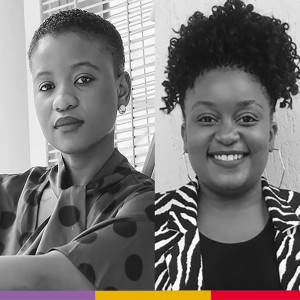
Tuesday Aug 03, 2021
Tuesday Aug 03, 2021
In conversation with Ms Bonolo Makgale and Ms Tariro Sekeramayi
“….in our use of social media as activists, it’s important for us to do so responsibly…”
The annual campaign for the Centre for Human Rights, University of Pretoria is #Tech4Rights: Rethinking a human rights-based approach to new technologies in Africa. The campaign focuses on the impact of new technologies on different aspects of human interaction and the impact of technology on human rights. This campaign has a series of activities that look into technology in various specific areas.
One of the ways Africans are using technology for interaction and to amplify human rights issues on the continent, is through social media. Statistics show that Southern Africa has the second highest social media penetration on the continent, at approximately 41%, placing the region as the second-highest social media users on the continent. The increased use and access to social media has subsequently given rise to a new form of protest and activism called ‘hybrid activism’ where social media is increasingly being used as a platform for protest, activism and solidarity. In this episode, Tariro Sekeramayi is in conversation with Bonolo Makgale, discussing the use of social media as a tool of activism, protest and solidarity in the region, with a particular look at Eswatini, South Africa and Zimbabwe. The discussion explores the use of social media and the extent to which it has opened the civic space as a platform to access and lobby for certain civil and political rights, political reform and accountability. The episode also explores the downfalls of social media use for protest, activism and solidarity and how it is likely to affect the region’s civic space in the future.
Ms Tariro Sekeramayi is an LLM Candidate at the University of Pretoria and a research assistant in the Democracy and Civic Engagement Unit. Ms Bonolo Makgale is the Manager of the Democracy and Civic Engagement Unit at the Centre for Human Rights, University of Pretoria which aims to develop strong, direct democracies in Africa that can amplify citizen voices in decision-making. The Unit also endeavours to promote the ratification of the African Charter on Democracy, Elections and Governance to support institutions that defend democracy in Africa. The Unit has also been extensively involved in elections on the continent through research, advocacy and capacity building initiatives.
Music: Inner Peace by Mike Chino https://soundcloud.com/mike-chinoCreative Commons — Attribution-ShareAlike 3.0 Unported — CC BY-SA 3.0 http://creativecommons.org/licenses/b...Music promoted by Audio Library https://youtu.be/0nI6qJeqFcc
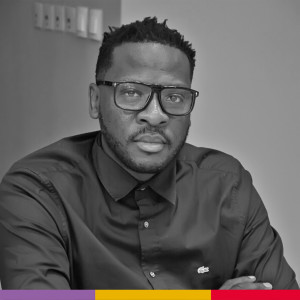
Thursday Jul 29, 2021
Thursday Jul 29, 2021
In conversation with Dr Tshepo Madlingozi
South Africa saw a series of violence and destruction in Gauteng and KwaZulu-Natal in the last few weeks. What started off as protests against the imprisonment and incarceration of former president Jacob Zuma on charges of contempt of court by the Constitutional Court, spiralled into a week of mayhem, with poorer communities and other opportunistic citizens taking to the streets to loot and burn key infrastructure, shops, malls, trucks and warehouses. The consequences of the unrest resulted in incalculable damages beyond financial losses, the loss of lives and livelihoods. While it is still unclear to understand who instigated and organised the violent protests, it is clear that South Africa’s longstanding history of inequality and the effects of the COVID-19 pandemic provided fertile ground for the speediness and mobilisation of violent protests to take place.
With South Africa’s society still built on what apartheid looked like where the majority remain disenfranchised from the future of the economy, this episode explores South Africa’s socio-political landscape to understand the violent protests. This episode also discusses the extent to which these protests threatened to undermine the independence of the judiciary and the rule of law in South Africa and offers recommendations on what the government can do to offer sustainable and long-lasting solutions to address the root causes of violence and unrest.
Dr Tshepo Madlingozi is an Associate Professor of Law at the School of Law at the University of the Witwatersrand. He is also the Director of the Centre for Applied Legal Studies, one of South Africa’s leading human rights and civil society organisations. Dr Madlingozi, who holds the degrees LLB cum laude, LLM, MSocSci, Law, Sociology from the University of Pretoria and a PhD from Birbeck University of London, is a renowned critical analyst and activist with a passion for rectification, transformation and decolonialisation.
Dr Madlingozi has been actively working to effect social change and justice and has served as the national advocacy co-ordinator and a board member of the Khulumani Support Group, which represents over 85,000 victims and survivors of apartheid-era gross human rights violations. In addition to his work at Khulumani, Dr Madlingozi has served on the boards of various human rights and social justice organisations, including the Centre for Human Rights, University of Free State, the Socio-Economic Rights Institute of South Africa, Zimbabwe Exiles Forum, the Council for the Advancement of the South African Constitution and Amandla.mobi. He has also been a consultant to the Office of the United Nations High Commissioner for Human Rights and the Pan-African Parliament. He has served on Project 25 of the Advisory Committee of the South African Law Commission, scrutinising the legislation administered by the Department of Provincial and Local Government to identify redundant provisions and determining compliance with Section 9 (‘the equality clause’) of the Constitution.
This conversation was recorded on 27 July 2021
Music: Inner Peace by Mike Chino https://soundcloud.com/mike-chinoCreative Commons — Attribution-ShareAlike 3.0 Unported — CC BY-SA 3.0 http://creativecommons.org/licenses/b...Music promoted by Audio Library https://youtu.be/0nI6qJeqFcc

